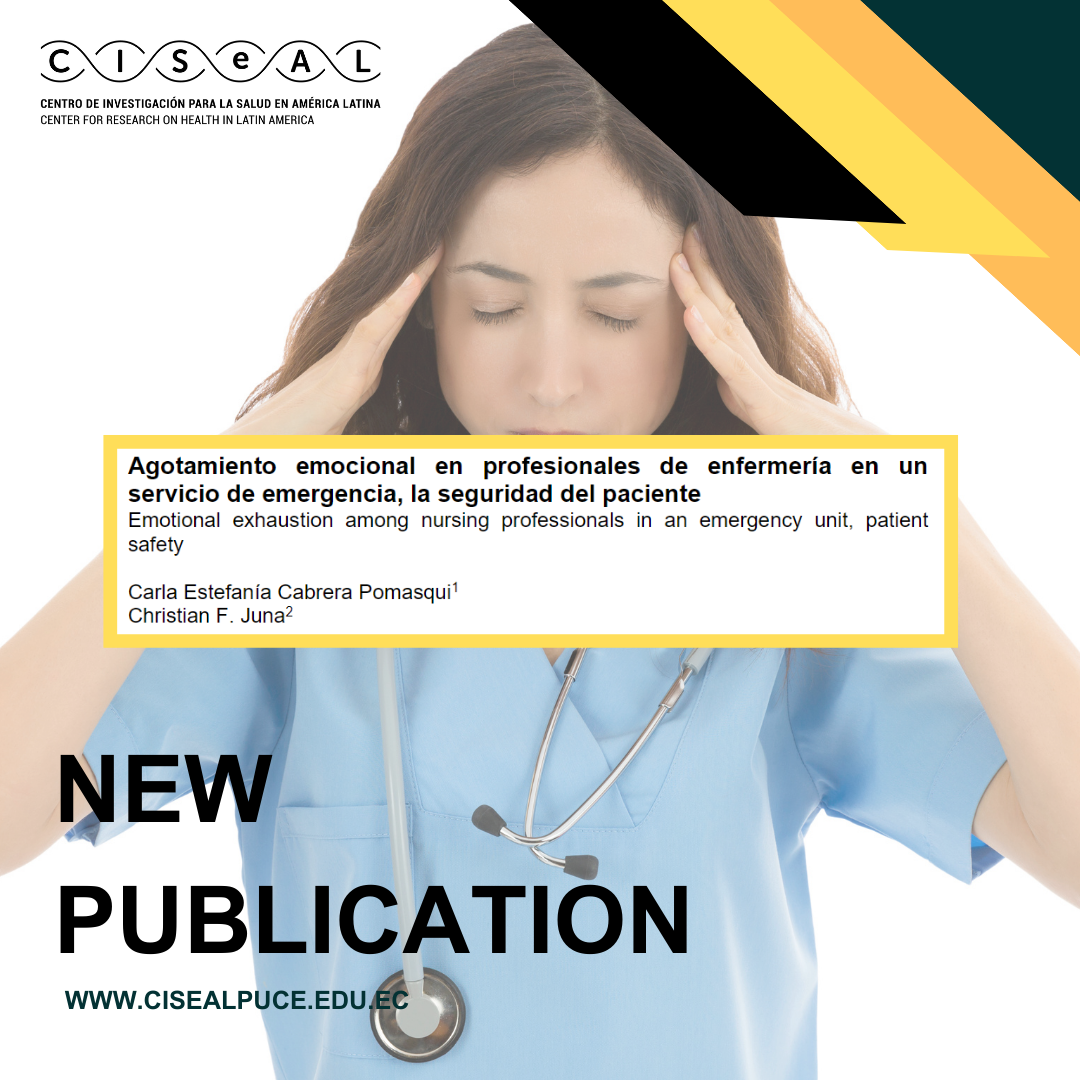
In healthcare, the well-being of professionals is not only crucial to their own quality of life, it also has a direct impact on patient safety and satisfaction. In a recent study, our CISeAL Research Associate Christian F. Juna looks at the challenges faced by nurses in emergency situations, highlighting the intrinsic relationship between emotional exhaustion and the quality of care delivered.This comprehensive analysis reveals how the work environment, the emotional and physical demands of the profession, and the management of interactions with patients and their families can lead to emotional exhaustion. This condition not only harms nurses' health, but can also affect patient safety, by increasing the risk of errors, lowering the quality of care and negatively affecting the nurse-patient relationship.
The article highlights the importance of a healthy work environment, not only in terms of positive patient outcomes, but also in terms of nurses' satisfaction and well-being. It focuses on how work overload and stress affect professionals' ability to provide empathetic, quality care, which can lead to a deterioration in patient safety and the efficiency of healthcare services.The article highlights the importance of a healthy work environment, not only in terms of positive patient outcomes, but also in terms of nurses' satisfaction and well-being. It focuses on how work overload and stress affect professionals' ability to provide empathetic, quality care, which can lead to a deterioration in patient safety and the efficiency of healthcare services.Through detailed research, the dimensions of emotional exhaustion are explored, from its impact on nurses' mental and physical health to the consequences for patient care and safety. The article highlights the need to develop comprehensive strategies that address both occupational health and the emotional and psychosocial aspects of nursing work.
The study also highlights initiatives and policies aimed at creating a healthier work environment, including reducing workloads, improving the organizational climate and implementing effective emotion management practices. These measures aim not only to improve the well-being of healthcare professionals, but also the quality of care and patient safety.The study also highlights initiatives and policies aimed at creating a healthier work environment, including reducing workloads, improving the organizational climate and implementing effective emotion management practices. These measures aim not only to improve the well-being of healthcare professionals, but also the quality of care and patient safety.The study concludes with a call to action for healthcare administrators, nursing human resource managers and public policy-makers, highlighting the importance of understanding and mitigating emotional exhaustion among nursing professionals as an essential element in ensuring safe, effective and high-quality healthcare.
We invite you to read the full article at the following link:



